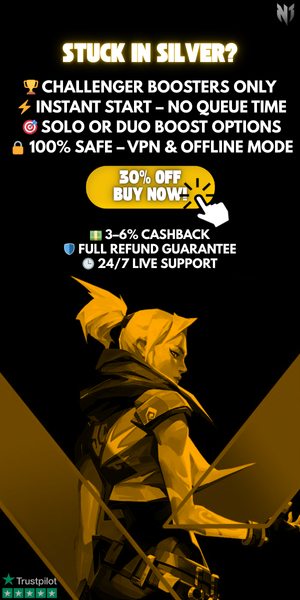The Science Behind Tilt: Staying Mentally Strong in Ranked
Introduction
Tilt is one of the biggest obstacles for climbing in Valorant ranked matches. Mental fatigue, frustration, and emotional swings can reduce performance, increase losses, and stall MMR gains. Understanding the psychology of tilt and learning strategies to stay mentally strong is essential for consistent rank progression in 2025.
1. Recognizing the Signs of Tilt
- Emotional Indicators: Irritation, anger, or overreacting to mistakes.
- Behavioral Patterns: Risky plays, miscommunication, or blaming teammates.
- Performance Drop: Missing shots, poor rotations, and decision-making errors.
Why It Matters: Early recognition lets you take proactive steps to prevent long-term negative effects on your rank climb.
2. The Psychology Behind Tilt
- Stress and Cortisol: Losing streaks increase stress hormones, affecting focus and reaction time.
- Cognitive Overload: Processing multiple stressful situations reduces your ability to make rational decisions.
- Emotional Contagion: Team frustration can spread, amplifying mistakes and losses.
Strategy Tip: Understanding the mental mechanisms behind tilt helps you stay composed under pressure.
3. Techniques to Maintain Mental Strength
- Short Breaks: Step away between games to reset focus and reduce emotional strain.
- Mindfulness and Breathing: Simple exercises can lower stress and improve in-game decisions.
- Goal Setting: Focus on personal improvement rather than just winning to reduce frustration.
- Positive Self-Talk: Replace negative thoughts with constructive reminders of strategy and skill.
4. Building Long-Term Mental Resilience
- Consistent Practice: Mental strength improves with routine and exposure to stressful situations.
- Healthy Lifestyle: Sleep, nutrition, and exercise directly affect concentration and emotional control.
- Reflection and Analysis: Review mistakes calmly to learn rather than react emotionally.
Impact: Strong mental resilience translates into more stable MMR gains, better gameplay, and a more enjoyable Valorant ranked experience.
5. When to Seek Support
If tilt leads to severe stress, anxiety, or negative mood swings, consider professional advice or counseling. Mental health is as important as mechanical skill for consistent rank climbing.
Conclusion
Staying mentally strong in Valorant ranked is a science. Recognizing tilt, understanding its psychological roots, and applying proven mental strategies help you maintain focus, make better decisions, and climb ranks more efficiently.
For players looking to complement mental strategies with skill-based rank improvement, visit N1Boost
. N1Boost provides professional Valorant boosting services to help you climb safely and effectively while protecting your account.
Tags
Jettor
Author



